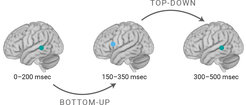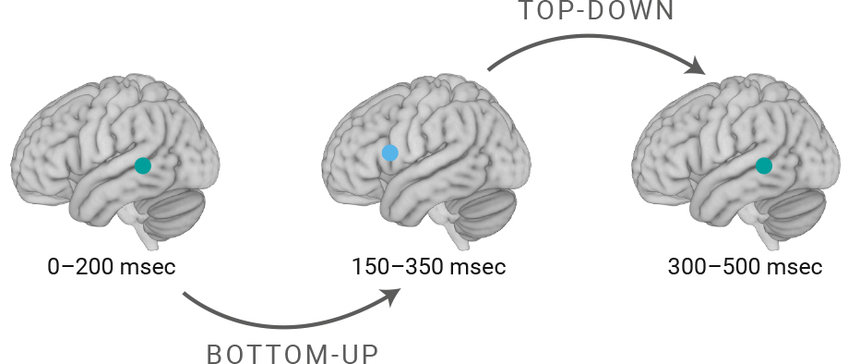How our brain processes language over time
"I'll have another coffee!" During an everyday conversation, listeners need to quickly and efficiently extract different types of information from what is being said in order to understand the message being conveyed. The complex process of language processing is controlled by the interaction between widely distributed regions in the brain. But how exactly do the processes in our language network work? In a multi-part study, Joëlle Schroën and her colleagues at the MPI CBS have found evidence of coordinated temporal interaction within the human language network.
In three studies, electroencephalography (EEG) measurements and an established, non-invasive stimulation method called transcranial magnetic stimulation (TMS) were combined to understand how the temporal and spatial processes in the temporal and frontal cortex of the brain are linked. Short sentences such as "He drinks the beer" or "He sees the beer" were presented via headphones to investigate the brain's expectations, with "drinking" leading to more accurate predictions than "seeing". Electromagnetic stimulation was used to briefly modulate individual areas of the brain in order to investigate the causal/direct relationship between the structure and language function of the brain.

"We saw in the measurement data that the information is first processed in the temporal cortex, then in the frontal cortex and then back again in the temporal cortex. We were therefore able to causally prove that these areas work together during speech processing," explains Joëlle Schroën, first author of the study. "And this cooperation takes place very quickly - the speech information is processed and transmitted within milliseconds, presumably via white matter pathways connecting different brain regions.” The present results show that a remarkable temporally well-coordinated interaction between the areas within the language network provides the basis for the human ability to process language fast and efficiently which in turn make our everyday conversation so easy.












